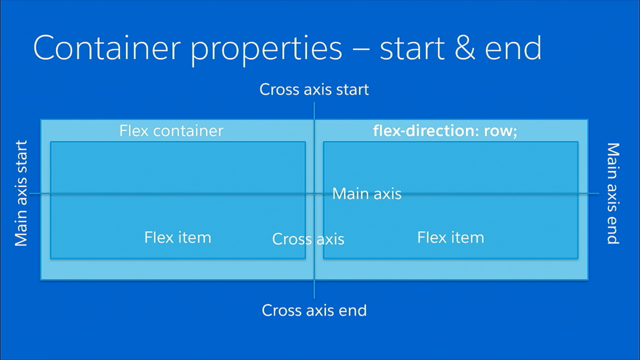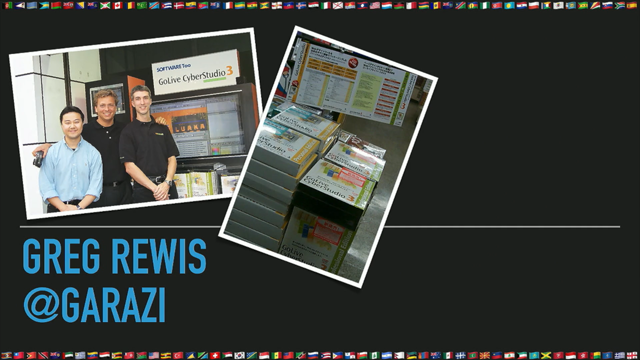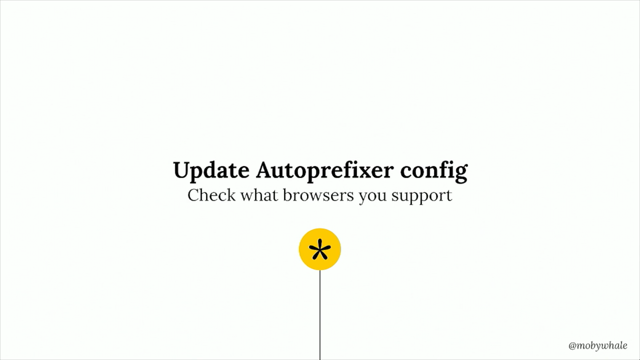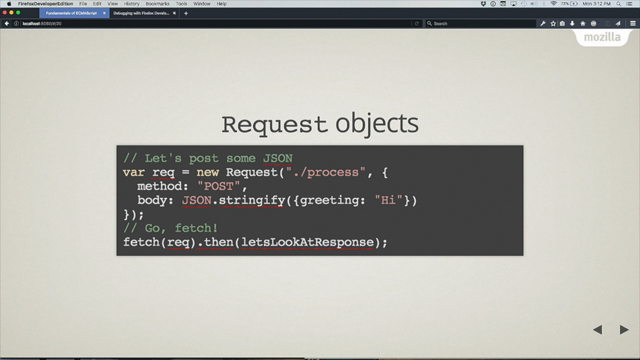Working Less, Living More

(upbeat techno music) - It is true, my name is Michael Honey.
I am a huge disembodies head.
I'm a real human being, standing up here.
I am the founder of the company called Icelab. I'm gonna have to kind of wander over here, I'll kinda like talk a bit, and then I'll just kinda walk over to look at my slides, and maybe have to get my glasses out.
I've just become old enough that I can't really do this properly anymore. I'm the founder of a boutique-y, design and development studio called Icelab. We're based in Canberra and Melbourne, mostly. We do a lot of lovely work that I'd love to tell you about, but the reason that I'm here and the reason that most people actually want to talk to me is not because of the work that we do, but because at Icelab, we work four days a week, and have done so for approximately a decade. And that means that yeah, Monday to Friday is our normal working week. So every Friday is off, a long weekend every weekend. And if you're not independently wealthy, and you haven't cashed out of your IPO, or born into royalty, or something like that, and you actually have to work to earn a living, then this is actually a pretty good option. And the reason for that is just straight up mathematics. You do 20% less work, and you get 50% more weekend, which I think you'll all agree is a compelling trade-off. So, today I want to talk to you about why we did it, as a company, what it means for us, like the impact for us as a company, and I want to encourage you all to join me on what I think is probably the next step in an ongoing process of you know, what it means to be working in what is currently the end of the teenage years of this century.
We're all gonna be alive for a fair bit longer, and I can imagine things are gonna be changing over time, and this is just kind of, where I feel like things are actually going.
So I started Icelab in 2006, and I had just come from the advertising industry, worked a lot of late nights, few overnighters, lot of hard deadlines.
And we started working like pretty much everyone does, like five eight-hour days, more or less, and then, you know, we were working a bit longer sometimes, when we had deadlines. But what I really wanted to do, and part of the reason that you start a company, is that you can make the company the kind of company you wanted to have, right? So I wanted, in particular, to work at more humane pace. So after a couple of years, like what happens when you start a company is you don't really know how you're gonna do things, and you have a couple of clients and you need some more, and like, ah, how do we do stuff? And it's all kind of difficult, but after a couple of years, we kind of learned how to Icelab, like what actually that meant.
And we got reasonably good at it.
And so we had become a little bit more, I think effective is the term, not efficient anymore. And the normal thing to do would be to give ourselves pay rises, at this stage. But what we did instead is we rewarded ourselves with time. We just said, well, we're gonna try working a four-day week. Initially, we were tied to the idea that you had to work to work like 40 hours a week; otherwise, I don't know, your company would go out of business or something like that.
And so we did, we worked 10-hour days for a bit. And that lasted approximately two months.
It was just too hard.
And it's not so much that...
Like, any of us can work 10-hour days, once or twice. We can work them for a long time if we want to. But we also have families, and we have daylight, when we want to actually go home during the daytime, or go to work when the sun's up and stuff like that. And it just became a real grind.
And so we said, look, stuff it.
We just won't work at all, and on the fifth day, we'll rest. And we'll just see how it goes.
So I know work's a pain for you to come, so you need graphs. So here's a chart, if I can make it come.
Here we go.
(audience laughs) It's not a very exciting chart, I admit.
But it's powerful in it's simplicity, is the way that we say it.
Five days of work and two days of play, compared to four days of work, and three days of play. And you can see that one of them is better than the other one.
And the whole point is, I was being facetious when I said 50% more, but it's true. 50% more is a lot more.
It's not like, oh, you get 5% more weekend, or something like that.
You get a whole extra day, every single weekend, is a lot more.
Let's actually do some more mathematics.
Two charts, great value.
229 days of work, approximately, if you work a five day week, have four weeks of holidays, which we get in Australia, and not in some benighted other countries.
And so you end up doing, with public holidays and whatnot, about 136 days of play.
And if you were doing a four-day week, you miss out on a couple of public holidays, because there's a Friday public holiday, but you're already not working, so you can't do that. But you end up working approximately 183 days, and you'd have 182 days off, which is so close to half and half, that we say, well, you have your birthday off as well.
So now, we work just less than we don't work, which is awesome.
But like, people talk about work-life balance, and you know, the truth is that it's way easier to have work-life balance, if you actually have work-life balance.
(applause) I'll just leave, this is fantastic.
And that's about 47 extra days off for the year. Like, 47 days is a lot of days.
You can do a lot in 47 days.
You could take a month and a half off.
You could volunteer for your community.
You could write a novel.
You could learn an instrument.
You can get fit.
Now, these are all things that, you know, quite ambitious, and I don't think I've done any of those things. But you can also just do ordinary things.
Like you can go and get your hair cut, and you can pay bills, and you can read and think and snooze in the bed. And stuff like that.
And you can just do more of them.
So, like putting my businessman hat on, the other part, of course, is that 47 times eight hours is about 376 hours, and if you're essentially a consulting company, like we are, putting on my boss hat, I'm like, that's a lot of hours that we're missing out on. We could be making money out of those things, and that kind of brings the question which we get asked a lot, which was, what happens when you go to four days? Like, did you take a pay cut? And the answer is no, like, we didn't.
I mentioned that we kind of got better at what we did. And then we chose to reward ourselves with time instead of money.
So I suppose in some sense, it's true, that we didn't give ourselves that pay rise, so that was a forgone opportunity.
But we have actually raised our pays since then. But the important thing is that, we said that what we want to do is we want to be as efficient as we can.
We're gonna say, look, we know we only have a limited amount of time to do this work, on a per week basis.
We need to be focused with what we're doing. We're not gonna be kinda like, flabby in, just coming to work late, and sort of sit around the coffee shop and whatever. We're actually gonna come in and we're gonna work hard for the four days. And then we'll be really clear about saying, now we're not working.
So the distinction between the two was quite important to us.
So I think it's quite easy, particularly in like, we got laptops and phones, and we can all work remotely and stuff like that, we can be working all the time.
But I think if you can possibly help it, try to be quite clear about what constitutes work, and what constitutes not being at work.
Because the ability to not have to worry about the things that you are not doing is actually really, really important.
So we didn't take a pay cut, but I don't want to pretend that we didn't limit our earning capacity.
Like, I think if you're a grown-up, you have to understand that there are trade-offs for everything.
Like, we could have done more work, and hence, earned more money, if we work for five days. But we could've also done that if we'd done for six days, or seven days.
There's some sort of diminishing return here. And you just make a decision at what point you're gonna do it.
Because I know, when I said I was working in the advertising industry, and I was working sometimes 24 hours, 36 hours in a row, I can tell you that 36th hour was not a quality hour of work.
Similarly, if we were to work seven days, like, you can do it, a couple of times, if you're in a crunch time, but you can't just do it week on week.
You'll just basically get the shits and burn out. There's a diminishing return on your productivity as you work more and more. And you just need to make a decision about when, like how much effort you want to put in.
But the other thing which is really important to understand is that there's diminishing returns on salary. And this kinda gets to the...
I guess it's pretty much a political point, which is that when you don't have much of a thing, a little bit more of that thing is actually really, really valuable.
So if you're only earning 20K a year, and someone says, we're gonna give you a 20K pay rise, that's fantastic, you're doubling the amount of money that you're making, and it's actually really important.
To go from 20,000 dollars a year, which is like, below the poverty line, to 40,000 dollars a year is a fantastic improvement. When I went from being a poor student, I was studying in PhD, yes I was doing philosophy, studying my masters in philosophy, thinking about going and become PhD, I was dirt dirt poor, and it totally sucked. I earned like 12,000 dollars, or something like that, as a 21 year old.
And to go from that to actually a pretty shitty advertising salary was a massive difference. But that same 20K increment, if you're earning 80,000 dollars...
80,000 dollars to 100,000 dollars is not a big deal. 150,000 dollars to 170,000 dollars is an even smaller deal. There's definitely a diminishing return on the satisfaction that you get.
So I guess what I'm saying is that the combination of diminishing returns on productivity per day, from working too long, and diminishing returns on the amount of happiness you get, out of every extra dollar you earn, kinda says that at some point, you're better off not working more, and just like, spending less time, and having more time to do other things in your life. And I suppose that's about the concept of enough. Human beings just aren't very good at recognising enough. If you don't have very much food, getting food is really important.
If you've already had a lot of food, more food does not do you any help.
As humans, we project that something's gonna be linear. We say, well, if a little bit more is good, then even more will be better, and we'll keep on going. But that endless growth just can't continue. It's no good for us, and it's no good for the earth. So with that, hopefully I've made you think that that's a good idea, what I want you do is put on your sort of, loss aversion hat, so if we're talking about the psychological approach, and imagine that your boss said this to you. You're already working a four day week, and they say to you, "I want you to do 25% more work, lose 33% of your weekend, "and after tax, I'm gonna give you a 15% pay rise." And I submit to you that that is a shitty deal. You should not take it.
And that's about having time affluence.
Because the person that says that's a bad deal is time affluent.
They've got plenty of time, which means that they appreciate the value of time, and they've got that thing that you can never get any more of.
Like, we can always earn a little bit more money. You are never ever gonna get more time.
Each day that you have is like, that day is gone. There's a value in time which is completely incommensurate with money. If you have a stack of money, and you get a little bit more money, it doesn't really matter.
But in 80 years, when you're 80 years old, and you think about all the time that you were at work, you'll wonder, well, was that extra day actually worth it? The other thing that having time affluence gives you is optionality.
You know those little gamey things where you move stuff around to try and make a puzzle? Like, there's like a four by four grid and you have to move stuff around? The reason that you can move stuff around is you have a gap. If there's no gap, you can't move.
One of the advantages of having extra time, because we do normally work Monday to Thursday, is if you have to do something, like you want to go surfing on a Tuesday morning, or you want to take your kid to a bays in arms movie thing, or something like that, then you can do that. Because you've got time that you can shift around. Now, working four days a week is just like, one of those decisions which affect revenue. I said I wasn't kidding you that it does cost money to do this, but that's not the only thing.
Like, our decision about our business model, or the clients we have, or the kind of work we're willing to do, they also affect how much money.
So don't think that this is just what one decision you can make.
This is just kinda one of the levers, but it's a really, really effective lever.
It makes a massive difference.
But plenty of people already work part-time, I hear you say. It's true, like in Australia, fully half of all women work part-time, or casual work.
Probably not in a place like this.
This room has probably got a bunch of people who are working good and well paying careers. But a lot of people already work part-time. But the problem with those part-time people is that in a full-time context, part-time people are deviant people.
In a company full of people who are working full time, then the part-time person is in a career limiting situation. They're not there for every meeting.
They're not able to take control of the important project, which means they can't succeed in the important project, which means they don't get promoted because of the important project.
Being part-time is for some people, a career graveyard. And it comes as no surprise that a lot of those people are women.
So I think that the insistence upon...
Or having a standard five-day work week, and then having some people be part-time has itself got implications for the sorts of people who succeed in those organisations. So what I'm talking about is trying to make full time just less time.
That's essentially what I want to say.
That the full-time should be a smaller amount of time, if possible.
Now, some jobs require 80-hour weeks.
I totally understand that.
Like, if you're trying to prevent an asteroid from hitting the earth, or you are actually paid to successfully fight climate change, or you're helping children from being in an earthquake or something like that, yeah sure, work an 80-hour week.
But most of the stuff we do is not actually that important. Like I love the work we do at Icelab, but honestly, if we ceased to exist, then some people would have uglier websites. That's not the worst thing that's gonna happen, right? So, really it's about making room for more important things. One of my motivations, like my personal motivations for wanting to work less, is that I want to have time to do things which I think are important, which just don't make me money. So, being involved in community, or being involved in politics, or doing art, or writing, or thinking, or reading, or snoozing, or whatever it is that you want to do, but that is probably more important than yeah, making a prettier website, or a better collaboration tool, or whatever it is that you do.
But maybe you do need some extrinsic reasons. Not everyone has a burning desire to actualize themselves. Maybe you need some better reasons.
It's good for your health.
It's obvious that, stress for example, just in scientific American article, just this week, said that stress is linked to people getting Alzheimer's, for example.
We know that cortisol is bad for your body. Sleeping more is better for you.
Having an extra day to sleep in is definitely better for you.
It's good for the environment.
If you commute less often, then you will spend less time in cars, and you will have less carbon emissions, and you will also not impact the roads so much. So if you're in Sydney, probably the worst place to commute in the entire world, you won't be impacting other people as much. Good for the environment.
It's good for the community.
If you have more opportunity to be involved in community, you will be a better person inside that community. It's good for your relationships.
It's good for having time for your partner, or your children, or your parents, or your friends. Putting a roast chicken in the oven and having it ready for your partner when she comes home on a Friday night is very effective, as a relationship. And it's also good for employment.
I mean, if it is the case, and it kind of is the case, that someone who works four days can't do quite as much work as someone who works five days, then we can employ more people, so it seems like a pretty good reason.
And since it's the one you tell your boss, you say that happy and rested, creative people are probably better at their jobs than people who've been out and late.
And that's, I think, a reasonable thing to say. I guess the last thing is, that it's probably inevitable. If we do things right, as a civilization, if we don't burn up or sink beneath the ocean or kill each other, then technological advances are going to make that the amount that we need to work tend towards zero. Like, a four day week is not magical.
It's just like, this happens to be where we're at. Like, once upon a time, we might have had to work seven days a week. If you're working subsistent agriculture, you have to work all the time in order to get somewhere. And then, you know, maybe 150 years ago, you were there, and now we're here, and we're heading in this direction.
And like, what happens there, like, who knows? And there's like a lot of argument about that. And I'm really happy afterwards to talk about universal basic income versus job guarantees, and all that sort of stuff. But the point is that this trajectory, unless we stuff up, this the way that we're going. So you might as well get ahead of the curve, and go to a four day week right now.
So, like, how do we make it sustainable? And this is the last main point that I'm gonna have before I get kicked off. You can't just announce that you're gonna go to four days. You have to actually make it sustainable.
And I think the main point that I would make is that a sustainable, credible, maintainable surface feature is actually the manifestation of a deeper principle. In design land, that's just what we like.
What tends to happen is people think about the surface manifestations, but actually, if you have a deep principle which supports those manifestations, then it actually is much more sustainable and makes more sense.
And those principles aren't always explicit, but you can normally infer them.
So, people have got, like, there's values and mission statements and stuff like that. I'm not talking about those sorts of things, I'm thinking about the things that actually underpin those. Because the mission and the vision and so on are merely strategic and tactical ways of getting to do something.
But what is the actual underlying principle? Let's see if some of these resonate with you. That is actually the principle behind a lot of companies. Maximising the stock price is the same as making the owners rich, except for in the case of the stock price, the owners don't even know what the company's about. Common theme for political party is to win the next election.
They're not actually there to try to do something good for the community.
All they really want to do is win the next election, and it manifests itself in different decisions that they make.
Yeah, people talk, I think discussion today was about, you know, banks and stuff like that. There are business models when the entire purpose of the company is to try and keep this damn business model going. Because every year is worth doing, like in the end, it's gonna fail.
Blockbuster obviously didn't go so well.
And I guess the last one that I think is relevant to some people is something like this. So those sorts of principles aren't necessarily gonna be compatible.
Different principles will have different effects. If you were trying to go to IPO, and you thought that you only had three months to get to market, otherwise some other IPO company's going to come in and eat your market, then yeah, it probably does make sense to not work four-day weeks.
But that's not the principle that we're going for. But the market, you say, you'll get bit in the market. The market is big.
I don't have to be the only design studio in the world. I only need like a little bit of the market to be able to live a satisfying life.
And so that means that the principle, the thing which is on page one of the employee handbook, is that Icelab exists to help us live good lives. That's the purpose of Icelab.
And the consequence of that, I mean basically, the four-day week is a natural consequence of that principle.
Like, it makes total sense.
If I could do a three-day week, I would.
If we could just make money out of the ether, and not do anything at all, it'd be absolutely fantastic. But I mean, to some extent, work isn't necessarily evil. No, we're trying to make it as nice as we possibly can. But doing other things is actually more important than earning a living, sometimes.
And so the earth's the principle.
And I understand that that's you know, that's fine for Michael to say that, but if culture is what we actually, like actually demonstrably value, this is a highly contentious statement, I have no idea what culture is supposed to be, but I feel like culture is actually, it's what we value, and it's what we actually, demonstrably value.
What we really do, not just what we pretend that we value. And so if that's what we value, then, now I'm put to you that what we should be doing is we should be valuing time over money.
And yeah, one way to do that is to just work a four-day week.
That's pretty much it, I've got nothing more. (upbeat techno music)
Michael’s company Icelab has run a four-day week for the last ten years. Find out about, the challenges they faced, how they made it work, and why working less means helps build a happier, more creative, more diverse team.















